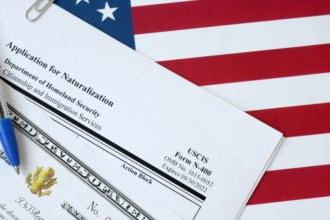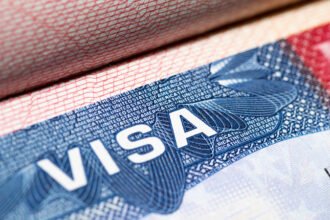For talented individuals in the world of sports, entertainment, and the performing arts, the United States remains one of the most coveted destinations for showcasing skills on an international stage. However, entering the U.S. legally to work as an athlete or entertainer requires more than just talent and an invitation—it requires the appropriate visa. For many professionals in these fields, that visa is the P visa.
The U.S. P visa category is designed for internationally recognized athletes, artists, entertainers, and support personnel who wish to perform or compete in the United States. Whether you’re a solo artist, part of a band, a team athlete, or part of a culturally unique performance troupe, the P visa may be your ticket to performing in America.
This article provides a complete, easy-to-understand guide to applying for a U.S. P visa. We’ll break down the types of P visas, eligibility criteria, required documents, and the step-by-step application process.
What is a P Visa?
The P visa is a non-immigrant temporary work visa that allows foreign nationals who excel in certain fields—especially athletics and entertainment—to enter the United States to perform or compete. The visa is also available to essential support personnel, such as coaches, stagehands, or team staff.
The P visa is not a green card or a path to permanent residency. It is granted for the duration of the event, competition, or performance (with specific limits depending on the visa type) and can often be extended if necessary.
Types of P Visas
The P visa classification is divided into several categories, each targeting specific groups:
P-1 Visa: Internationally Recognized Athletes and Entertainment Groups
-
P-1A Visa – For internationally recognized athletes, either individually or as part of a team.
-
P-1B Visa – For members of internationally recognized entertainment groups.
P-2 Visa: Artists or Entertainers in Reciprocal Exchange Programs
-
For individuals or groups performing as part of a reciprocal exchange between organizations in the U.S. and a foreign country.
P-3 Visa: Artists or Entertainers in Culturally Unique Programs
-
For those coming to the U.S. to perform, teach, or coach in a program that is culturally unique.
P-4 Visa: Dependents
-
For spouses and children of P-1, P-2, or P-3 visa holders.
Let’s explore each in detail.
P-1A Visa: Athletes
This visa is designed for athletes who are:
-
Coming to the U.S. to compete individually or as part of a team
-
Recognized internationally for outstanding performance
-
Participating in an event that requires the participation of internationally recognized athletes
Eligibility Requirements
To qualify, the athlete or team must demonstrate a high level of achievement, supported by evidence such as:
-
International rankings
-
Media coverage
-
Awards or records
-
Membership in reputable sports leagues
The competition in the U.S. must have a distinguished reputation, and the participation of international competitors must be essential.
P-1B Visa: Entertainment Groups
This visa is for members of internationally recognized entertainment groups.
Eligibility Requirements
-
At least 75% of the group must have been with the organization for at least one year
-
The group must have international recognition for sustained excellence
-
Evidence of critical acclaim, commercial success, or prestigious awards is essential
Solo artists do not qualify for the P-1B, unless part of a recognized group.
P-2 Visa: Reciprocal Exchange Performers
These are granted to artists and entertainers coming to the U.S. as part of an exchange program between U.S. and foreign organizations.
Eligibility Requirements
-
A formal reciprocal agreement must exist between the U.S. and the foreign entity
-
The performance must be comparable in quality and terms for both sides
-
Labor unions in the U.S. must approve the exchange program
This is common for cultural exchanges or bilateral artistic collaborations.
P-3 Visa: Culturally Unique Artists and Entertainers
This category is for individuals coming to the U.S. to perform, teach, or coach culturally unique art forms.
Eligibility Requirements
-
The performance must be traditional, ethnic, folk, or culturally significant
-
The purpose should be to develop, interpret, or promote a unique cultural expression
-
Events must be intended to educate or expose the public to cultural heritage
Examples include traditional African drumming groups, Irish step dance troupes, or Mongolian throat singers.
Essential Support Personnel for P Visa Holders
Many athletes and entertainers travel with essential support staff, such as coaches, trainers, or lighting technicians. These individuals may also qualify for P visas.
They must:
-
Be an integral part of the performance
-
Have critical skills not easily replicated by U.S. workers
-
Show evidence of working with the principal applicant regularly
How to Apply for a P Visa
Now that you understand the different P visas, let’s walk through the process of applying.
Step 1: Employer or Sponsor Files Form I-129
You cannot apply for a P visa on your own. A U.S. employer, agent, or sponsoring organization must file Form I-129, Petition for a Nonimmigrant Worker, on your behalf.
This form should be filed:
-
At least 45 days before the intended start date of employment
-
No more than 1 year in advance
The employer must submit documentation of your credentials and details of the performance or event.
Step 2: Prepare the Required Documentation
The Form I-129 must be accompanied by:
-
Written consultation from an appropriate labor union (if applicable)
-
Copy of contract between you and the employer
-
Explanation of the event or itinerary
-
Evidence of eligibility, such as:
-
Awards
-
Media articles
-
Rankings
-
Critical reviews
-
Cultural significance (for P-3 applicants)
-
-
Affidavits or expert opinions
-
Letters of support from industry professionals
The quality of documentation is critical to approval.
Step 3: Wait for USCIS Decision
After USCIS receives the Form I-129 and documentation, it will:
-
Issue a Receipt Notice
-
Review the petition
-
Possibly request additional evidence (RFE)
-
Issue an Approval Notice (Form I-797) if approved
Processing times can vary, but typically range from 2 to 6 months. Premium processing is available for faster service (15 days).
Step 4: Apply for the Visa at a U.S. Consulate
Once you receive the I-797 approval:
-
Complete Form DS-160 (Online Nonimmigrant Visa Application)
-
Schedule a visa interview at the U.S. embassy or consulate in your country
-
Pay the visa application fee
-
Attend the interview with all documentation, including:
-
Passport
-
Visa photo
-
DS-160 confirmation
-
Form I-797
-
Supporting documents
-
Step 5: Enter the U.S.
If the visa is approved, you will receive a stamp in your passport. At the port of entry:
-
Bring all original documents
-
Be prepared to explain your role, performance, or event
-
Border officials may ask about your itinerary
You will be granted entry with a Form I-94, which notes your legal stay duration.
How Long Can You Stay on a P Visa?
-
P-1 Individual Athlete: Up to 5 years, renewable once for 5 more years (10 years total).
-
P-1 Team or P-1B Group: Initial stay of up to 1 year, with extensions in 1-year increments.
-
P-2 and P-3 Visas: Valid for the length of the event (up to 1 year), extendable if needed.
Support personnel receive the same length of stay as the principal applicant.
Can You Bring Your Family?
Yes. Your spouse and unmarried children under 21 may apply for P-4 visas.
They may:
-
Live in the U.S. while you perform
-
Attend school
-
Not work unless they get a separate work visa
Can You Change Employers or Extend Your Stay?
Yes, but with conditions:
-
A new employer must file a new Form I-129 if you switch jobs.
-
You can apply for extensions if your event or tour is extended.
-
You must maintain your visa status by adhering to the purpose of your stay.
Unauthorized work or overstaying can jeopardize future U.S. visa applications.
Tips for a Successful P Visa Application
-
Plan Early – Start the process several months ahead of your scheduled performance.
-
Choose the Right Visa Type – Ensure you fit the P-1A, P-1B, P-2, or P-3 categories.
-
Build Strong Documentation – Include reviews, awards, press clippings, or cultural significance letters.
-
Use Professional Help if Needed – Immigration attorneys or visa specialists can assist with complex cases.
-
Ensure Union Consultations Are Included – Labor unions play a role in approving many P visa petitions.
Conclusion
The U.S. P visa is a gateway for talented athletes and performers to shine on American soil. From soccer tournaments and Olympic competitions to global concert tours and cultural performances, this visa supports a wide range of international professionals in the sports and entertainment industries.
While the application process involves detailed documentation, timelines, and coordination with sponsors and labor unions, it is a manageable process with the right guidance and preparation. Whether you’re a world-class musician, a cultural ambassador, or a championship athlete, the P visa could be your backstage pass to success in the United States.



